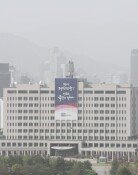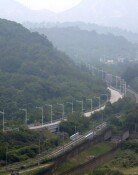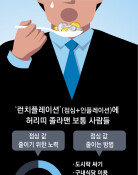China's internal conflicts over N. Korean nuclear and THAAD
China's internal conflicts over N. Korean nuclear and THAAD
Posted September. 18, 2017 07:23,
Updated September. 18, 2017 07:45
In an interview with the China Review News on Sept. 9, the Dean of the School of International Studies at Peking University (PKU) Zha Chingguo strongly criticized the official stance the Chinese government is taking. "Even though North Korea is launching ballistic missiles that passed the Japanese sky, the Chinese Ministry of Foreign Affairs is pursuing two-track suspension (of the North Korean nuclear provocations and R.O.K.-U.S. joint exercise) and another two-track approach (on denuclearization of the Korean Peninsula and China-U.S. peace treaty) as breakthrough measures (to deter North Korean nuclear provocations),” Zha told the press. "As Pyeongyang is ignoring the effort made by Beijing and continues to develop nuclear weapons, the situation may call for a preemptive strike from Washington or political crisis in Pyeongyang, which will ultimately lead to a serious volatile situation. China should also acknowledge the possibility of a war, and should make preparations based on dialogues with Korea and the U.S."
Meanwhile, the Vice President of the Zhejiang Society of International Relations Zhu Zuhwa who issued a statement on last Monday, saying, "(Zhou's argument) is based on the rationale that China and North Korea hold responsibilities for the crisis in the Korean Peninsula, and goes against the strategic Maginot Line set by the Chinese leadership that there should never be a war in the Korean Peninsula. Moreover, Zhou's idea is misleading the strategic decisions set by top officials.” Here, Zha retorted with his article on Saturday titled "Loud Voices Do Not Guarantee Reason," refuting that the development of nuclear weapons in North Korea is no more than a serious threat to the Chinese defense system, and your argument is also no more than a advocacy for North Korea.” The heated debate between the two scholars eventually passed on to the Chinese online forums.
It is no surprise to see differences in opinions between the mainstream conservative and liberal progressive scholars in China on the subjects of the North Korean nuclear issue and the Terminal High Altitude Area Defense (THAAD) weapon system. While mainstream conservative scholars expressed their consent to the official statements made by the central government, Professors including Zha and Seon Zuhwa at the East China Normal University criticized North Korean nuclear development and the retaliatory THAAD by Beijing. Even pro-government scholars such as the former Professor at the Central Party School of the Communist Party of China Zang Rengui or Nanjing University professor Zhu Feong made mild criticisms on Beijing, saying, "THAAD should not hold negative impact on both Korea and China." Zhang even went on to say, "China should not intervene, even when the U.S. makes preemptive strike on Pyongyang."
These debates in the academic circle will gain heat whenever North Korea completes developing nuclear weapons and when more U.S. legislators call for preemptive blows. Still, that does not mean that the basic direction of the Chinese policies on THAAD and North Korean nuclear provocations will soon change as well. Indeed, it will be difficult for Beijing to revise their strategy on the Korean Peninsula where North Korea is considered as their strategic asset, and that the two issues are repeatedly admitted by Premier Xi Jinping that they are stumble blocks for the core interest of China. Nonetheless, the current dispute in the academic circle will give significant pressure to the Communist Party and the central government as they near their general convention. South Korean government should also pay close attention and set plans.







